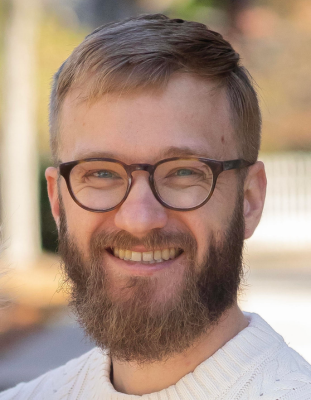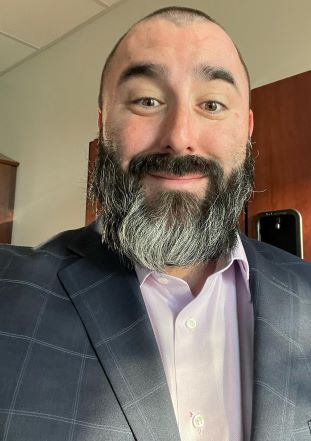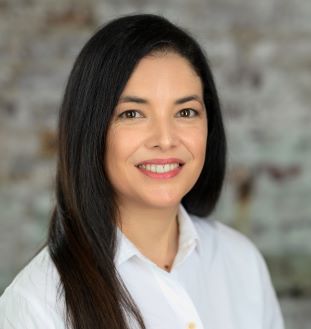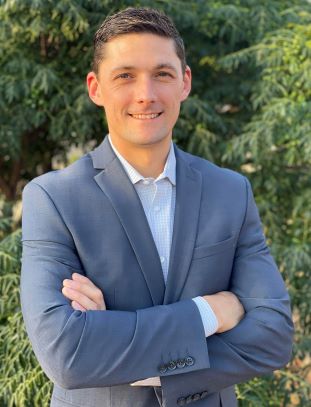The SPIRE Center is thrilled to offer the opportunity for scholars to participate in a 1-year mentorship program exploring systems-level issues about addiction treatment and related services (including payment, care delivery, quality, and sustainability), learning from SUD treatment systems research experts about shaping a research agenda, building health services research skills, and engaging in networking activities with experts in the field.
The SUD Systems Performance Scholars Program offers tailored ongoing mentorship from experienced addiction health services researchers. It supports scholars who are new to the field and who demonstrate an interest in developing a program of addiction health services research.
Current SUD Systems Scholars
We welcome our third cohort of SUD Systems Performance Scholars in September 2025 and their program culminates in a final gathering during the 2026 AHSR Conference.
Jack Cordes, PhD

Dr. Jack Cordes is an Assistant Professor in the Department of Public Health and Community Medicine at the Tufts University School of Medicine. He completed his PhD in pharmacoepidemiology and his MS in biostatistics at the Harvard T.H. Chan School of Public Health. He has been working on research related to substance use issues and the opioid crisis since 2015 and is keenly interested in the application of spatial and spatial-temporal models in large, complex data systems to inform opioid-related overdose intervention and prevention efforts. He is currently working on a National Institute on Drug Abuse grant (MPI: Thomas J. Stopka, Cici Bauer) leveraging large, linked administrative datasets to predict opioid-related overdose in Massachusetts and simulate potential intervention effects.
Dr. Cordes’s work ranges from national to local and he is deeply committed to working with community partners to ensure maximum benefit of his research for people who use drugs. His research has been featured on NPR, the Harvard Public Health Magazine, and US News and World Report. Dr. Cordes is the PI on a Tufts Initiative on Substance Use and Addiction grant to study the spatial distribution and harmful impacts of xylazine in the unregulated opioid supply in Lowell, Massachusetts.
Research interest:
Developing a data system to identify opioid-related overdoses involving xylazine and analyze their spatial and temporal distribution to inform prioritization of treatment and harm reduction services
Andy Hyatt, MD

Andy Hyatt is a clinician scientist at the Health Evaluation Research Lab (HERLab) and a staff psychiatrist at the Cambridge Health Alliance (CHA), as well as an Instructor in Psychiatry at Harvard Medical School. He received his MD through the Boston University School of Medicine, completed his residency in Adult Psychiatry at CHA, and then went on to complete a research fellowship funded by the Dupont Warren Fellowship and Livingston Award through the Harvard Medical School Department of Psychiatry.
Dr. Hyatt is a health services and policy researcher interested in the intersection of serious mental illness, substance use, and public policy. He is currently funded on an NIH K23 Career Development Award through the National Institute of Drug Abuse (NIDA) to study the effect of adult use cannabis legalization on individuals with schizophrenia and related conditions, and is passionate about using research to help inform health policy to improve outcomes for individuals with mental illness and substance use disorders.
Research interest:
The effects of cannabis use on individuals with and at risk for schizophrenia and related conditions
Tiffany Lemon, PhD, MSPH

Dr. Tiffany Lemon is an Assistant Professor of Health Services Research at Arizona State University’s College of Health Solutions. She received her PhD in Population Health Sciences (Epidemiology) from the Harvard T.H. Chan School of Public Health and completed postdoctoral training as a T32 Research Fellow at Massachusetts General Hospital and Harvard Medical School. Dr. Lemon has advanced training in methods for sampling, population estimation, and bias analysis for research with hard-to-reach populations.
Dr. Lemon’s research explores how shifts in social and institutional policy influence health care access and outcomes, particularly for people navigating systems of incarceration, substance use, and structural disadvantage. Drawing from epidemiology, she applies causal inference and data integration methods to quantify inequities and evaluate candidate policy interventions when resources or support for RCTs are limited. Her current work focuses on justice-involved populations with substance use disorders and aims to identify actionable points for intervention during reentry. Dr. Lemon’s scholarship is grounded in a commitment to producing research that is meaningful and responsive to affected communities and has been supported by the Substance Abuse and Mental Health Services Administration and the Institute for Mental Health Research.
Research interest:
Investigating how policy-driven disruptions in health care access shape health care utilization and outcomes for justice-involved individuals with substance use disorders
Previous SUD Systems Scholars Cohorts
2024-25 Scholars
Latoya Attis, PhD, MFT-LP, MSW

Dr. Attis is a Clinical Assistant Professor of Marriage and Family Therapy at Yeshiva University’s Ferkauf Graduate School of Psychology and a marriage and family therapist limited permit holder in NY state. While working toward her Ph.D. in Social Welfare from Yeshiva University’s Wurzweiler School of Social Work, she was selected for the first inaugural cohort of the Council on Social Work Education-Society for Social Work and Research (CSWE-SSWR-GADE) Social Work Doctoral Student Policy Forum, which connects social work research with policymaking in Washington, DC.
Dr. Attis’s work seeks to improve the educational experiences and outcomes of neurodivergent learners through the use of multi-tiered systems of support framework. She is deeply committed to exploring the effect of the opioid crisis on the Black/African American population with a specific interest in developing culturally informed survey instruments utilizing theoretical models to facilitate behavior change and mind-body wellness. With a diverse background in marriage and family therapy, special education, social work, and restorative yoga, she brings a unique perspective to her research agenda, which focuses on the dynamic and transactional interplay between marginalized students, their environments, and various systems they navigate. Dr. Attis is currently the PI on a project developing a self-advocacy and resilience intervention to strengthen the self-advocacy and resilience skills of secondary education students with high-incidence disabilities as they transition to college.
Research interest:
Examination of Black/African American College Students’ Perceptions About Campus Factors Associated with Nonmedical Use of Prescription Opioids
Kate Jaffe, PhD

Dr. Jaffe is an Assistant Professor in the Department of Health Promotion and Policy in the School of Public Health & Health Sciences, at the University of Massachusetts Amherst. After receiving her Ph.D. in Sociology from the University of British Columbia she completed a postdoctoral fellowship at the Center for Bioethics and Social Sciences in Medicine at the University of Michigan.
Dr. Jaffe is a medical sociologist investigating the social, structural, and ethical issues surrounding randomized controlled trials (RCTs) for substance use disorders as well as inequities in access to medications for opioid use disorder. She is currently the project lead on a NIDA-funded project through Fordham University concerning the ethical considerations among RCT staff in substance use research and is also a co-investigator on a NIDA-funded R61 study that aims to increase access to HIV prevention and care for people with opioid use disorder in Massachusetts jails
Research interest:
Evaluating pharmacists’ perceptions of their roles in OUD treatment to understand individual and institutional issues surrounding treatment provision in pharmacy settings.
Orrin D. Ware, Ph.D., MPH, MSW

Dr. Ware is an Assistant Professor at the University of North Carolina at Chapel Hill School of Social Work. After receiving his Ph.D. from the University of Maryland School of Social Work, he completed a National Institute on Drug Abuse (NIDA) T32 postdoctoral fellowship at the Johns Hopkins University School of Medicine Behavioral Pharmacology Research Unit.
Dr. Ware’s research examines substance use and substance use disorder. His research skillset is bolstered by real-world experiences working as a licensed clinical social worker (i.e., in substance use disorder treatment facilities) and as a harm reduction researcher (i.e., conducting HIV screening on a mobile clinic in high-risk areas from 9:00 pm to 2:00 am). Further, he has an interdisciplinary lens with formal graduate and postdoctoral training in behavioral pharmacology, field epidemiology, public health, and social work. Some of his recent studies have focused on barriers to accessing services for substance use disorders, co-use of codeine and cough syrup (referred to as “lean,” “purple drank,” “sizzurp,” or “syrup”), and the co-occurrence of mental health disorders with substance use disorders.
Research interest:
Increasing the availability of needed services for individuals with co-occurring mental health and substance use disorders.
2023-24 Scholars
We welcomed our first cohort of SUD Systems Performance Scholars in September 2023 and their program will culminate in a final gathering during the 2024 AHSR Conference.
Ryan E. Flinn, PhD

Dr. Flinn is an Assistant Professor of Counseling Psychology at the University of North Dakota (UND). Dr. Flinn’s program of research will address the syndemic of trauma, substance use, legal system involvement, and HIV transmission with a particular focus on peer recovery support services. Dr. Flinn has published on topics including trauma-sensitive approaches to K-12 education, mental health literacy and help-seeking, peer-referral to mental health services, polysubstance use, technology-delivered interventions for HIV prevention and gender dysphoria, and access to care.
Dr. Flinn completed their master’s degree at the University of Detroit Mercy, their doctorate at New Mexico State University (internship at The Ohio State University’s Counseling and Consultation Service), and postdoctoral training in HIV/LGBTQ Health Psychology at the Medical College of Georgia.
Pricila Mullachery, PhD, MPH

Dr. Mullachery is an assistant professor at Temple University College of Public Health. She received a PhD in public health policy from New York University and completed postdoctoral training in social epidemiology and urban health at Drexel University School of Public Health.
Dr. Mullachery is an interdisciplinary scholar with background in health disparities, causal inference, and health service research. Her research is focused on the impact of social and health care policies on health outcomes among disadvantaged populations. She is particularly interested in elucidating the mechanisms by which Medicaid policies may mitigate or exacerbate existing health disparities in access to medication for opioid use disorders.
Peter Treitler, PhD

Dr. Treitler is an assistant professor at Boston University School of Social Work. He uses a mixed methods approach to combine analyses of large administrative data sets such as Medicare and Medicaid claims with qualitative perspectives from consumers, patients, and policymakers.
Dr. Treitler is an investigator with experience as a substance abuse and mental health clinician, working with individuals returning home from incarceration. His current work examines the implementation and outcomes of health services for people with substance use disorders, and how federal, state, and payer policies shape their treatment and recovery experiences. With the goal of improving treatment across the health system, he studies interventions that engage individuals in correctional facilities, emergency departments, and primary care clinics, and the policies that support implementation in these settings.
